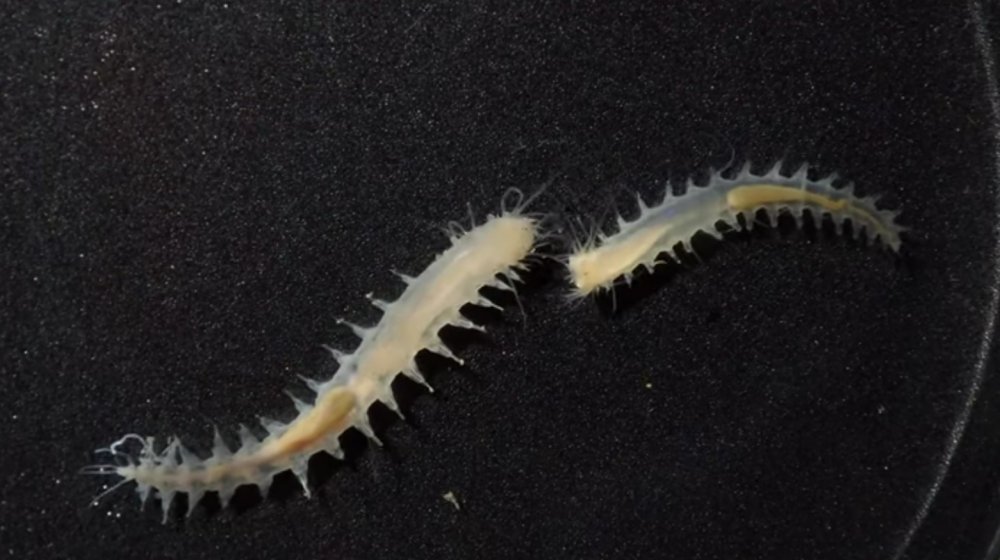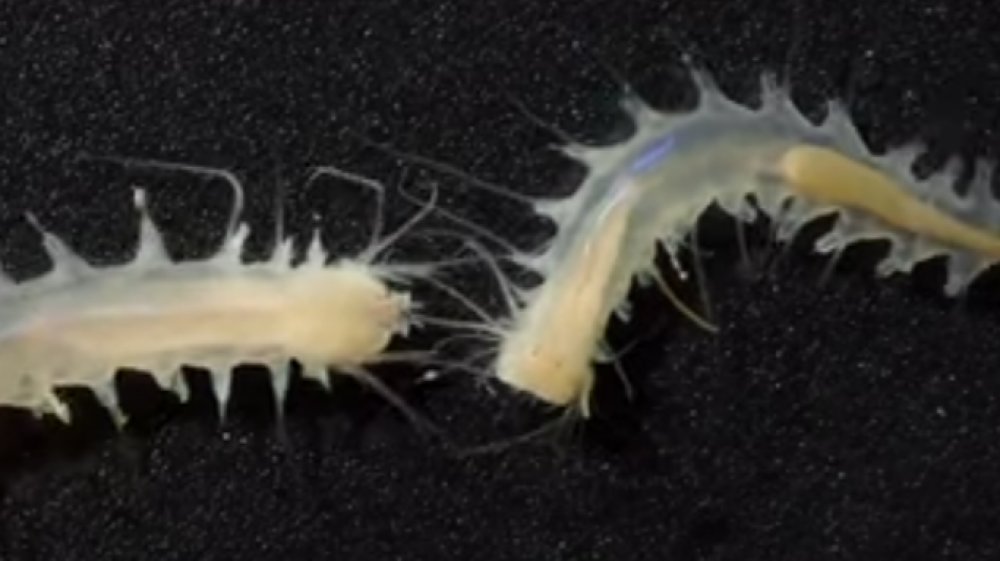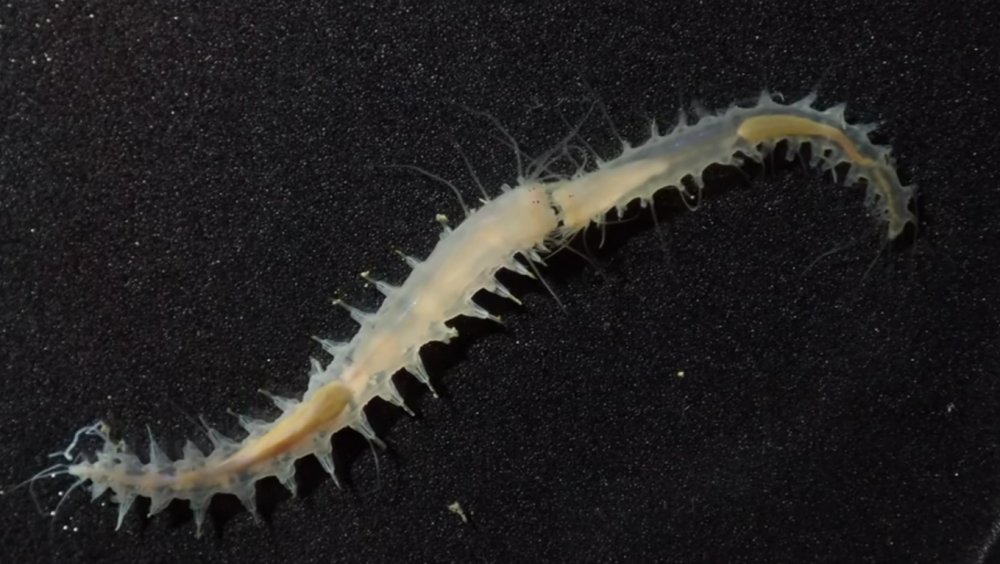The Tiny Worm That Makes One Of The Loudest Noises In The Ocean
"Mouth-fighting" sounds like one of the oddly violent sports metaphors people use in reference to French kissing, such as "tonsil hockey," "tongue wrestling," or "uvula boxing." But Live Science explains that scientists use the term "mouth-fighting" to describe battles between tiny underwater worms that live off the coast of Japan. Known as Leocratides kimuraorum, these wriggly strands of wet aggression measure 29 millimeters (a little over an inch) in length and fight by head-butting each other with their mouths open. Do they ever smooch mid-butt? Hopefully, but from the sound of things, they aren't looking to kiss and make up. When these worms' kissers collide, they produce one of the loudest, least affectionate sounds in the ocean.
The loudmouths of the ocean
What's the sound of two worms mouth-fighting? According to Live Science, it's a pop that reach 157 decibels. To be clear, people measure decibels differently in water than in air. For comparison, Purdue University lists the loudness of a jet take-off at 25 meters (about 82 feet) as 150 decibels, which is loud enough to rupture human eardrums. However, the cranium-clacking worms sounded like a much-less-deafening finger snap to experts standing next to a water tank where the worms waged war. Even so, that's absurdly loud, considering that the sound had to travel through water and glass and came from the angriest inch of flesh not connected to Hedwig.
The most baffling aspect of these belligerent critters is that unlike other loud pipsqueaks of the deep, Leocratides kimuraorum doesn't have the hardware you might associate with such a thunderous pop. For instance the pistol shrimp has a large claw that fires off sound by rapidly snapping shut. But the cranium-clacking worms are basically soft, hollow tubes, per Phys.org.
Pop and lip-lock
When marine biologist Richard Palmer first heard the head-butting worms, he couldn't quite wrap his head around it: "My eyes just popped out of my head because it was so unexpected." Palmer posited that muscles in the worm's pharynx produce "cavitation bubbles." He likened it to "[sucking] a smoothie through a paper straw." The harder you suck, the more pressure builds up until the sides of the straw (which represent the insides of the worm) cave in and unleash that energy in an explosive burst. Per Live Science, researchers also considered the possibility that the worms make this sound not by fighting but in order to declare a winner. Unfortunately, these oral warriors aren't likely to kiss and tell.


